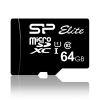Review: Affordable ruggedness in a stylish package
Today we’ll be taking a look at two Silicon Power 2.5-inch USB drives, with a completely different but equally appealing design. The 500GB Armor A10 is a ruggedized military-spec drive, which looks like it would go rather well with an A-10 close air support jet.
![]()
It’s designed to comply with U.S. military drop-test standard MIL-STD-810F 516.5 procedure IV (transit drop test), which basically means that it can fall from 1.22 meters onto a hard surface with no damage whatsoever, not even a scratch, thanks to its rubberized case.
![]()
This is pretty neat if you tend to be careless with your hardware. Also, it doesn’t cost as much as a Halliburton or KBR logistical contract. In fact, at a tad over €60 it is rather reasonably priced, and it looks like something Gadhafi would use to store his bank records. It measures 136x82.5x19.8mm and it’s not much larger than your average 2.5-inch drive.
With its stylish, brushed metal chassis, the slightly smug 640GB Armor A50 is an entirely different beast. It looks like a right-wing politician eager to send the A10 to warzone from the confines of a cozy lawmaker’s office. At 133.8x78.3x16.2mm and 200g, it’s not much smaller than the A10 and it meets the same drop-test standard. Although it doesn’t feel less sturdy, it’s clearly more prone to damage. Its finish is clearly more susceptible to scratches and damage, but it still feels like it could take a lot of damage and keep running. It sells for about €80, which isn’t bad, either.
Both drives also feature a one-touch backup function and some rudimentary data encryption. While the A10 feels somewhat more rugged thanks to its rubber chassis, it’s quite a bit more prone to fingerprints and smudges. The A50's brushed metal finish is less susceptible to hamburger fingers, but the glossy plastic on top is, well, a magnet for all sorts of dirt.
Benchmarks
Frankly, in this day and age there’s hardly any point in testing USB 2.0 drives. The interface acts as a bottleneck and most users simply won’t tell the difference in everyday use. If it’s any consolation, neither of the drives was a disappointment, as you can see in the charts and screenshots below.
The downside to both drives is that they are FAT32 formatted, which really isn’t a big deal, as it won’t take long before you reformat them. In our contiguous file test, we used a 1GB .rar archive and in our 1GB random file test we copied 928 files in 12 folders, which is a much more realistic scenario for most business users.
Conclusion
Silicon Power is a rather small company and it might not be the first name that comes to mind when thinking about external storage, but we must admit that we were pleasantly surprised with what they had to offer.
Both drives proved rugged, rather well designed and performance was more than adequate. Coupled with tempting prices, they are a pretty good offer. While many users will simply go for some brand name products, there’s really no reason to shy away from these babies, other than being a bit snobby.
Most portable hard drives are rather rugged and many of them comply with one drop-test standard or another, but small companies like to emphasize such stuff for press coverage or some niche marketing. In this case, there’s really no need to do so.
We simply liked the build quality - both drives feel like they can cope with pretty much anything a reasonable user would throw at them, or anything an intoxicated user might throw them at. They look nice and they’re affordable. In case you need more in terms of performance, Silicon Power also offers A80-series drives with USB 3.0 support.

